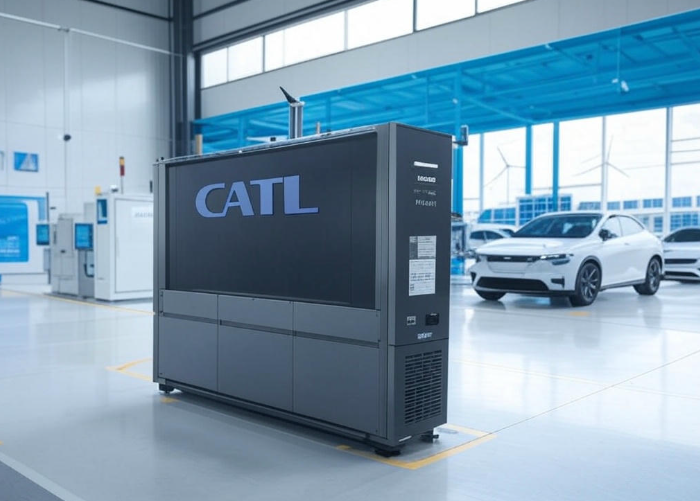Picture this: you’re 22 years old, fresh out of college, scrolling through job postings while your student loan payments loom overhead. The job market feels brutal, AI seems to be taking over everything, and your parents keep asking when you’ll finally “settle down” with a career. Now imagine someone telling you that you’re actually the luckiest person who has ever lived.
That’s exactly what Sam Altman, CEO of OpenAI, said recently. And honestly? It’s got everyone talking.
The Bold Claim That’s Stirring Up the Internet
During a recent podcast appearance on “Huge If True,” Altman dropped what might be the most optimistic take on Gen Z’s future we’ve heard all year. “I would feel like the luckiest kid in all of history,” he said, talking about what it would be like to graduate college right now.
This comes at a time when recent headlines paint a very different picture. Computer science graduates are reportedly struggling so much to find jobs that some are looking at opportunities at Chipotle. The job market for new grads has been rough, and many young people are feeling the squeeze of an economy that seems to promise less than what their parents experienced.
So what’s Altman seeing that others aren’t?
AI: The Great Equalizer or The Great Disruptor?
Altman’s optimism isn’t based on blind faith. It’s rooted in something pretty revolutionary – the idea that AI tools are fundamentally changing what one person can accomplish. He painted a picture where a single individual could potentially launch a company that reaches billion-dollar valuations and creates amazing products, something that used to require teams of hundreds.
Think about it for a second. We’re living in a time where a college student can use ChatGPT to brainstorm business ideas, create marketing copy, write code, analyze data, and even get advice on everything from career choices to relationship problems. “People in their 20s and 30s use it like a life advisor,” Altman noted, highlighting how different generations interact with AI differently.
But here’s where it gets interesting – and a bit controversial.
The Uncomfortable Truth About Job Displacement
Altman didn’t sugarcoat the challenges ahead. He openly acknowledged predictions that suggest “half of the entry-level white-collar workforce will be replaced by AI” in as little as five years. That’s not exactly comforting news if you’re trying to start your career right now.
However, his take on this potential disruption is where things get fascinating. Rather than viewing job displacement as purely negative, Altman sees it as part of a historical pattern that society has weathered before. “This always happens, and young people are the best at adapting to this,” he explained.
His bigger concern? It’s not the 22-year-old who will need to adapt – it’s the 62-year-old who might struggle with retraining or reskilling.
From Homework Helper to Life Operating System
What makes Altman’s perspective particularly intriguing is how he describes the generational differences in AI usage. It’s not just about age – it’s about fundamentally different relationships with technology.
Older generations tend to view AI as an advanced search engine. Millennials often use it more like a digital therapist, while “people in college use it as an operating system.”
This “operating system” approach is pretty mind-blowing when you think about it. We’re talking about a generation that doesn’t just use AI for specific tasks – they integrate it into their daily decision-making process. Some students reportedly don’t make major life decisions without consulting ChatGPT first.
Is this healthy? That’s a debate experts are still having. But it’s undeniably changing how an entire generation thinks and operates.
The Space Age Career Prediction
Here’s where Altman’s optimism gets almost science-fiction-level exciting. He suggested that in just 10 years, college graduates might be leaving Earth on missions to explore the solar system – and getting paid extremely well for it.
“Completely new, exciting, super well-paid, super interesting job[s]” are on the horizon, he believes. While interplanetary exploration might sound far-fetched, the broader point is compelling: technological advancement doesn’t just eliminate jobs, it creates entirely new categories of work that we can’t even imagine yet.
Think about it – 20 years ago, “social media manager” wasn’t a job title. Neither was “app developer” or “YouTube content creator.” The jobs that will define the next decade might be just as unimaginable to us today.
The Reality Check: What’s Actually Happening Now
While Altman’s vision is undeniably exciting, the current reality for many Gen Z graduates is more challenging. Goldman Sachs data shows that the traditional “college degree safety premium” has largely disappeared. The job market for recent graduates has weakened even as the broader economy appears healthy.
July 2025 saw a significant spike in layoffs, with nearly half related to AI and technological updates. That’s happening right now, not in some distant future scenario.
So how do we reconcile Altman’s optimistic vision with today’s tough realities?
The Tools vs. The Transition Period
Altman’s advice for navigating this uncertainty is surprisingly simple: “Just using the tools really helps.” He encourages people to move beyond basic searches and truly integrate AI tools into their daily lives.
The logic here makes sense. If AI is going to reshape the job market (and it already is), then understanding how to work with these tools effectively becomes a crucial skill. It’s not about competing with AI – it’s about learning to collaborate with it.
This might be the key to understanding why Altman sees Gen Z as lucky rather than threatened. They’re the first generation to grow up alongside these tools, developing an intuitive understanding of how to leverage them effectively.
Navigating the AI-Saturated Future
One of the most fascinating parts of Altman’s recent comments dealt with a challenge we’re already starting to face: how do we distinguish between what’s real and what’s AI-generated in an increasingly artificial world?
His answer suggests a fundamental shift in how we think about “reality” in media. “Media is always a little bit real and a little bit not real,” he noted, pointing out that even iPhone photos now involve AI processing.
Rather than fighting against this trend, he suggests we’ll gradually adapt our expectations and develop new ways of evaluating authenticity. It’s not unlike how we’ve already learned to be skeptical of heavily Photoshopped images or staged social media posts.
The Bigger Picture: A New Social Contract
Perhaps most importantly, Altman emphasized that navigating this AI-driven future will require “a great degree of humility and openness to new solutions.” He even suggested that fundamental changes to our social contract might be necessary.
This is where his optimism about Gen Z makes the most sense. This generation has already shown remarkable adaptability in the face of major disruptions – they’ve lived through a global pandemic, economic uncertainty, climate change concerns, and now the AI revolution, all during their formative years.
If anyone’s equipped to help society navigate these changes and potentially redesign how we structure work, education, and social support systems, it might just be the generation that’s already treating AI as a life advisor.
So, Are Gen Z Really the Luckiest?
Altman’s claim is bold, and honestly, it’s probably too early to know if he’s right. But his perspective offers something that’s been missing from a lot of AI discussions: genuine optimism about human potential.
Yes, AI will disrupt jobs. Yes, the transition period will be challenging. But if history is any guide, humans are remarkably good at adapting to technological change and creating new opportunities in the process.
The real question isn’t whether Gen Z is the luckiest generation in history – it’s whether they’ll use their unique position as AI natives to build a future that works for everyone.
What’s clear is that we’re living through a pivotal moment in human history. The choices made by today’s young adults about how to integrate AI into society will shape the world for decades to come. In that sense, maybe Altman has a point – being at the center of such a transformative time, with access to incredibly powerful tools, really might be a kind of luck.
The key is making sure that luck translates into positive change for everyone, not just the tech-savvy few.
The Bottom Line
Whether you buy into Altman’s optimism or not, one thing is certain: we’re all navigating uncharted territory together. Gen Z might have some advantages in this new landscape, but success will ultimately depend on how thoughtfully and responsibly we all approach these powerful new tools.
The luckiest generation in history? Maybe. But luck, as they say, is what happens when preparation meets opportunity. And right now, there’s plenty of both to go around – if you know where to look.



